Iran’s record oil sales lay bare inefficacy of US sanctions amidst global shifts
By Mojtaba Darabi
Iran’s ability to significantly increase its oil exports in the face of US sanctions has been described by experts as a remarkable feat, especially amid record-breaking crude exports.
In May, Iranian crude exports exceeded 1.6 million barrels per day, reaching the highest monthly rate since 2018, underscoring the resilience of the country’s oil industry and raising questions about the efficacy of sanctions imposed by the United States and its allies.
As negotiations to revive the 2015 nuclear accord, officially known as the Joint Comprehensive Plan of Action (JCPOA), continue, Iran’s success in expanding its oil sales despite curbs points to the shifting dynamics and complexities of international relations in the energy sector.
The surge in Iran’s oil exports to other countries notwithstanding US sanctions has captured the attention of experts, who acknowledge and applaud Iran’s resilience in defying restrictions.
“Iran’s crude exports smashed it” in May, Homayoun Falakshahi, a senior analyst at market analytics provider Kpler, was quoted as saying by Bloomberg in June. “Iranian crude is extremely interesting for those willing to take the risk to buy.”
The notable increase in Iranian oil sales raises questions about the extent to which the United States is easing sanctions amid ongoing talks that have been marked by multiple pauses.
Sara Vakhshouri, an expert at the global strategic energy-consulting firm SVB, told Reuters that compared to the Donald Trump administration, there hasn’t been “any serious crackdown or action” against Iran’s oil exports under the Joe Biden administration.
Thomas O’Donnell, a Berlin-based energy analyst, offered another perspective on the matter.
“It might be that the Americans are turning somewhat of a blind eye because they are happy to have as many more barrels on the market to help displace Russian oil,” he remarked, as reported by DW.
Why aren’t sanctions working?
President Biden had criticized the Trump administration’s so-called “maximum pressure campaign” against Iran, seeing it as a diplomatic blunder that strained relationships with European allies and fueled distrust from China and Russia.
However, his administration has been accused of not only not reversing the hard-nosed measures of the previous administration but escalating tensions further.
US State Department officials have rejected claims of lax enforcement of sanctions on Iran, emphasizing efforts to weaken Iran’s economy through a web of economic penalties.
Back in January, Robert Malley, the special envoy for Iran who has been put under suspension, told Bloomberg that Washington is determined to prevent an increase in Iranian oil exports and will do “everything in our power” to enforce the sanctions regime, particularly targeting China as the main destination for exports.
Elliott Abrams, who oversaw sanctions during the Trump administration, in May 2021 asserted that the penalties have successfully blocked billions of dollars in revenue for Tehran, a measure of their effectiveness according to him.
“That’s a success, and it can be measured by Iran’s efforts to get sanctions dropped or to get around them,” Abrams was quoted as saying by the New York Times at the time.
Failed pressure campaign
Despite the Trump administration’s aim to completely halt Iran’s oil exports, current export levels far surpass those during 2020 when they dropped below 500,000 barrels per day.
Crude shipments have doubled since last autumn, reaching 1.6 million barrels a day in May this year, despite the crippling American sanctions.
According to the Paris-based International Energy Agency (IEA), production has reached 2.9 million barrels a day, the highest since late 2018, while other consultants, SVB Energy, Petro-Logistics SA and FGE, estimate it may exceed 3 million barrels a day.
Iranian government officials, including Oil Minister Javad Owji, have celebrated the country’s stupendous success in selling its oil despite harsher sanctions that keep piling up.
Talking to IRNA on June 23, Owji underscored the role of energy diplomacy and improved relations with Asian, African, and Latin American countries in creating new markets for oil sales.
He said he will announce good news regarding oil sales in the coming months.
Bloomberg has corroborated these statements, reporting that Iranian oil is quietly re-entering the global market.
Oil exports keep surging
Data from various sources, including Kpler, SVB Energy International, FGE, and the International Energy Agency, indicates that Iran’s exports have surged to the highest level in nearly five years, solidifying its re-emergence on the geopolitical stage.
Market analysts and energy consultants have observed a continued increase in Iran’s oil production and sales, with estimates based on production levels, storage capacity, shipping data, and imports by foreign buyers.
Since late summer, Iran’s oil exports have been steadily rising, reaching an average of 1.137 million barrels per day in December, the highest reported figure in 2022.
Iran is said to have boosted its crude output to over 3 million barrels per day, representing approximately 3 percent of the total global supply.
This upward trend in production and sales has been confirmed by the IEA, which reported Iran’s May production at 2.87 million barrels per day, indicating continued growth compared to previous months.
Oil sales in post-pandemic era
Iran’s success in expanding its oil sales is closely intertwined with the post-pandemic surge in global oil demand and higher prices.
As the world emerges from the pandemic, the Oil 2023 medium-term market report projects a significant 6 percent increase in global oil demand between 2022 and 2028.
This surge in demand, fueled by sectors like petrochemicals and aviation, creates favorable conditions for Iran’s oil sales.
In response to harsh sanctions, Tehran has employed effective strategies to mitigate their impact, engaging in diplomatic relations with Eastern powers and neighboring countries while simultaneously keeping the window of negotiations open with the United States.
These interconnected actions reflect Iran’s efforts to navigate the complex landscape of international energy relations.
As Iran became a permanent member of the Shanghai Cooperation Organization (SCO), President Ebrahim Raisi on Tuesday emphasized the historical benefits of Iran’s membership and the need to remove the dominance of the dollar in shaping a fair international system.
He also highlighted the importance of expanding the use of national currencies in trade and financial exchanges within the SCO grouping.
Alternatives to SWIFT
To overcome limitations imposed by not having access to the SWIFT system and the dollar-based international system, Iran has been developing new transaction methods.
The Asian Clearing Union (ACU), which includes central banks from countries such as India, Pakistan, and Iran, is launching a cross-border financial messaging system as an alternative to SWIFT.
Iran’s internal financial messaging system, SEPAM, will replace SWIFT in trade exchanges with ACU members. Additionally, Iran has been successful in conducting trade using national currencies and expanding banking relations with countries such as Russia, contributing to the global shifts that have decimated the unipolar world led by the US.
Turning to the East, Iran has benefited from its improved ties with China, an economic giant.
China’s record-breaking import of Iranian oil in December, up 130 percent from the previous year, further highlights the strengthening of ties between Iran and China.
“China’s willingness to support Iran by taking its sanctioned oil suggests a slight improvement in Iran-China relations,” Greg Brew, an analyst at consultants Eurasia Group, was quoted as saying by Bloomberg in June.
He emphasized that this development supports the notion that “Iran’s position is improving, along with its advancing normalization with other regional states.”
Iran-Saudi détente and oil trade
In a significant geopolitical development, Saudi Arabia and Iran recently restored diplomatic ties in a deal facilitated by China, marking the end of a seven-year rift.
According to the head of the National Iranian Oil Company (NIOC), Mohsen Khojastehmehr, initial efforts for bilateral cooperation in the oil sector have already commenced.
The two countries have now initiated preliminary work to explore and exploit more than 28 jointly-owned oil and gas fields that have remained untapped due to previous disputes.
Notable fields include Farzad A and B, holding around 23 trillion cubic feet of natural gas reserves and 5,000 barrels of gas condensates per billion cubic feet, and the Arash gas field with approximately 20 trillion cubic feet of gas reserves.
This renewed cooperation presents significant opportunities, including the potential to produce up to one billion cubic feet of gas daily, fostering regional collaboration and resource utilization.
The evolving dynamics in foreign relations include US allies as well. In April, French President Emmanuel Macron emphasized the need for Europe to decrease its reliance on the US and avoid being entangled in the China-U.S. confrontation concerning Taiwan.
Macron advocated for Europe to pursue “strategic autonomy” and aspire to become a “third superpower,” as he discussed these ideas during a state visit to China in April, where he engaged in extensive discussions with Chinese President Xi Jinping.
Exclusion from US markets
Amidst the global shifts in foreign relations, there is a cautionary note regarding the effectiveness of imposing secondary sanctions on foreign buyers of Iran’s oil, potentially leading to their exclusion from American markets and transactions conducted in US dollars.
Henry Rome, a senior fellow at the Washington Institute for Near East Policy, suggests that such sanctions may no longer yield the desired results.
Turning up the heat on Tehran “could also provoke an Iranian asymmetric response, and there may well be skepticism in the Biden administration that this added pressure would be all that productive,” he said back in January.
Under such circumstances, buyers of Iran’s oil are willingly putting themselves at risk of violating sanctions, despite the potential penalties that may follow.
According to experts, the allure of new conditions has encouraged these buyers to test the limits of the sanctions regime, banking on the existence of loopholes and the calculated risk-taking by the companies involved.
They believe it is a testament to the fact that no sanctions regime can claim complete effectiveness as determined actors find ways to navigate the complex landscape of international trade.
US Senator Christopher S. Murphy has characterized the policy surrounding Iran’s oil exports as a “policy cataclysm,” highlighting the limited impact of sanctions.
“Trump imposed sanctions, and our partners, instead of following America’s lead, effectively took the Iranian side — even helping Iran work around our sanctions,” Murphy said at a Middle East Institute forum. “Trump’s maximum pressure campaign was a spectacular failure.”
US F-15E Strike Eagle multi-role attack fighter jet downed by IRGC air defenses
Iran won't target its neighbors, but US bases across region: FM spox
‘Unacceptable cowardice’: Indians slam Modi govt’s silence over US attack on Iranian ship
Trump's ‘peace through strength' stained with blood of innocent kids: Larijani
Qatar's LNG shutdown severely hits global economy: Ex-CEO of Iran's fuel company
Iran deputy FM says no messages exchanged with US since war
105 civilian facilities hit, 21 hospitals damaged in US-Israeli aggression: IRCS
Iran school massacre shows global failure to enforce war crime accountability: Analyst


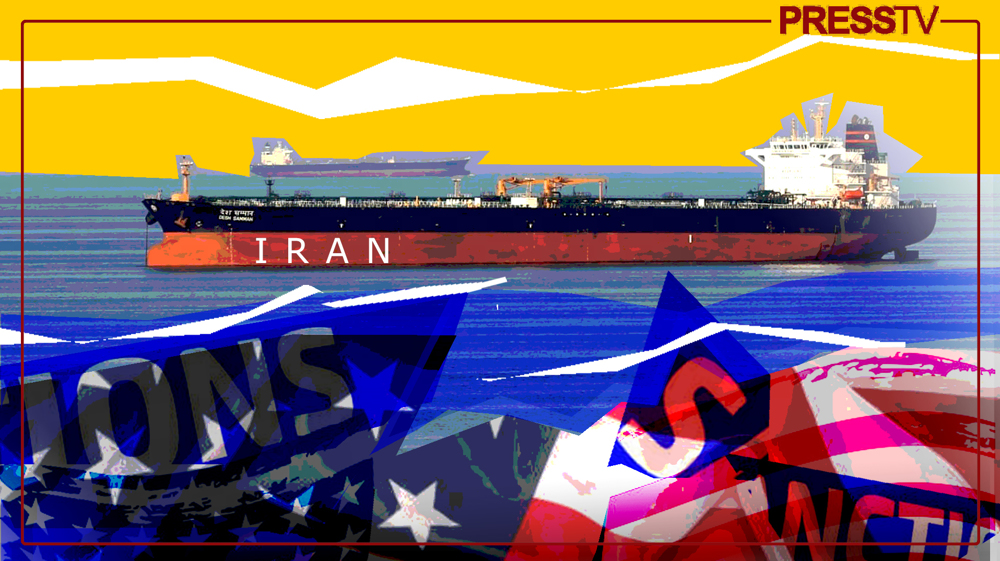

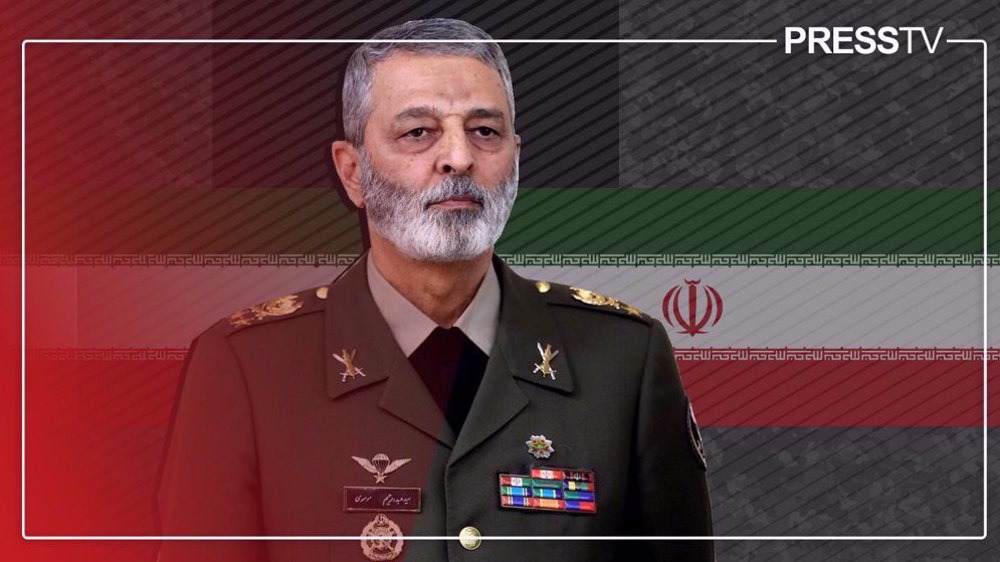
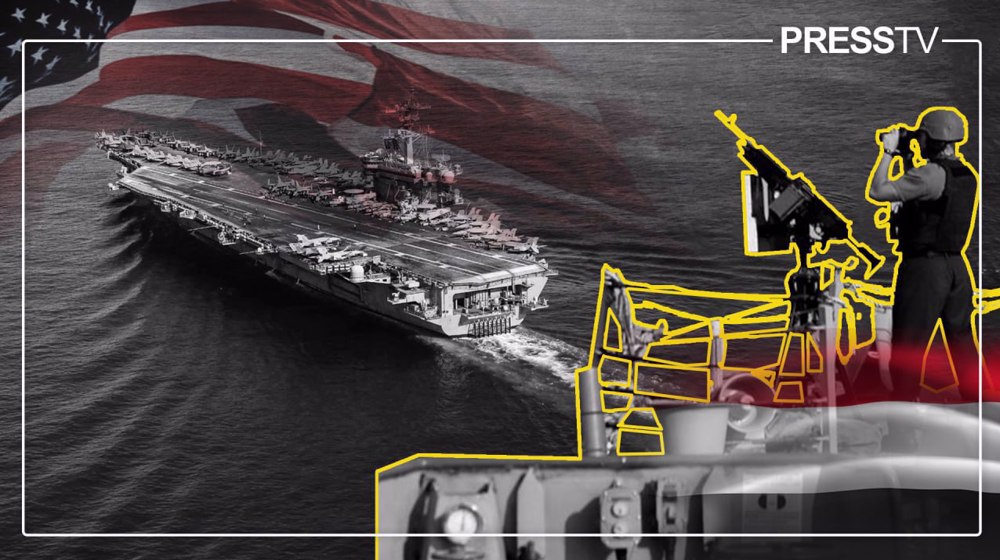



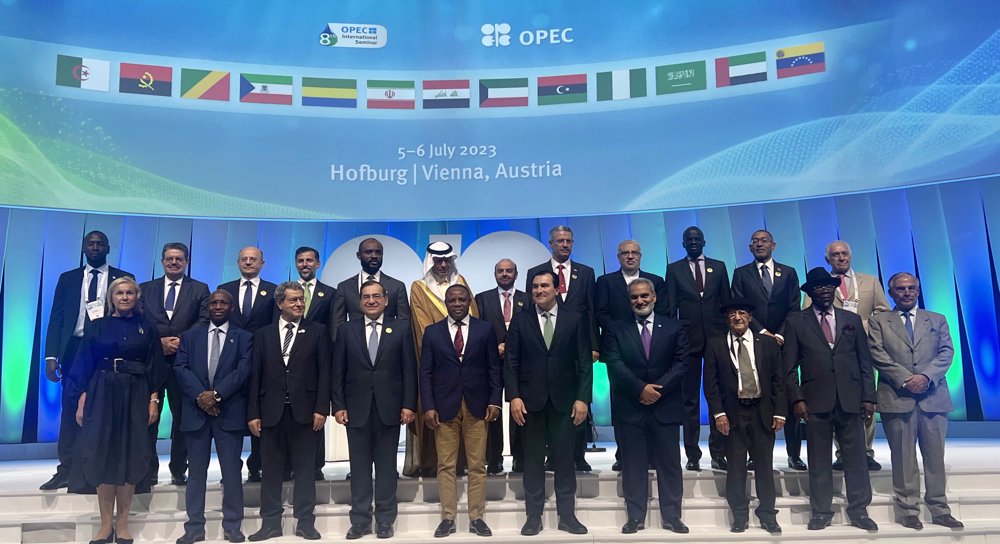
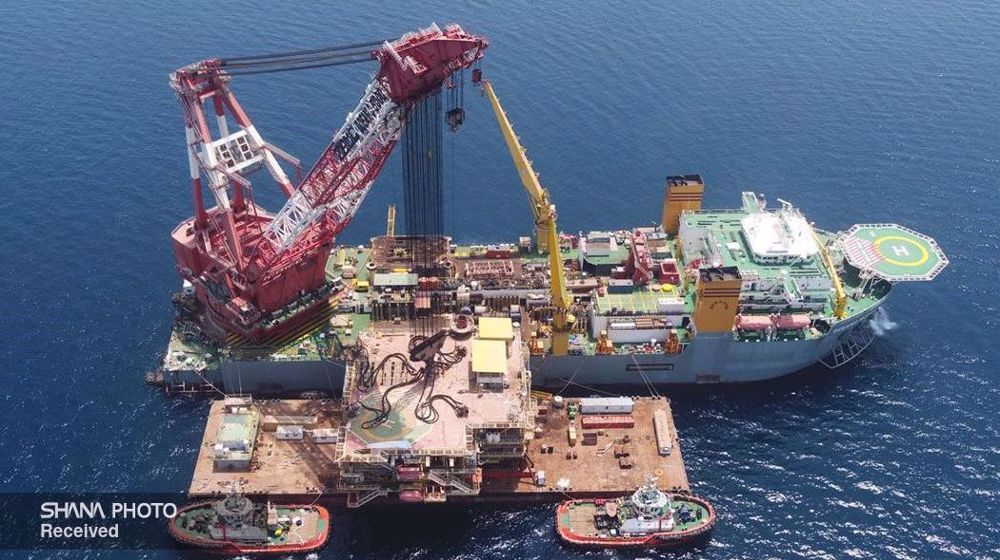
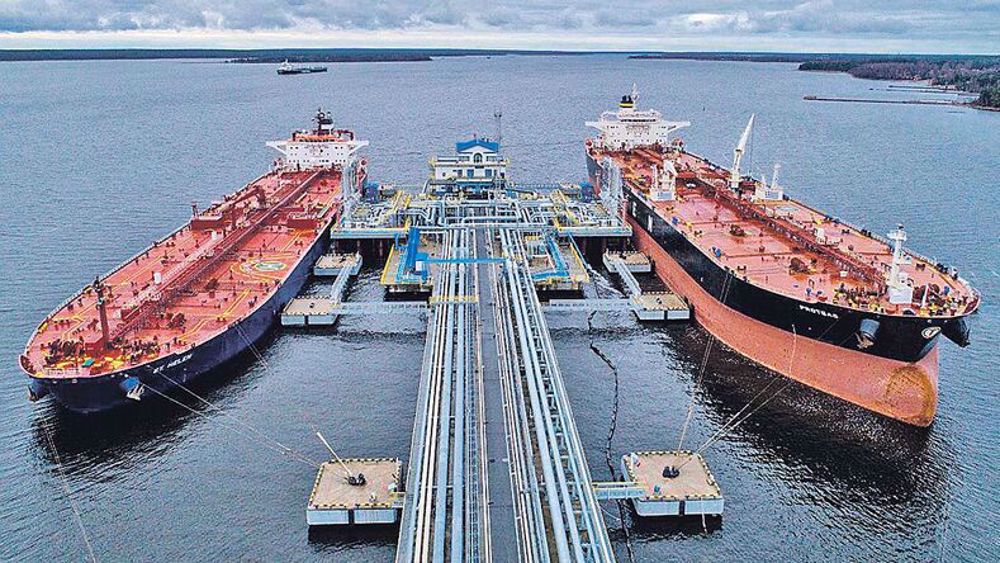
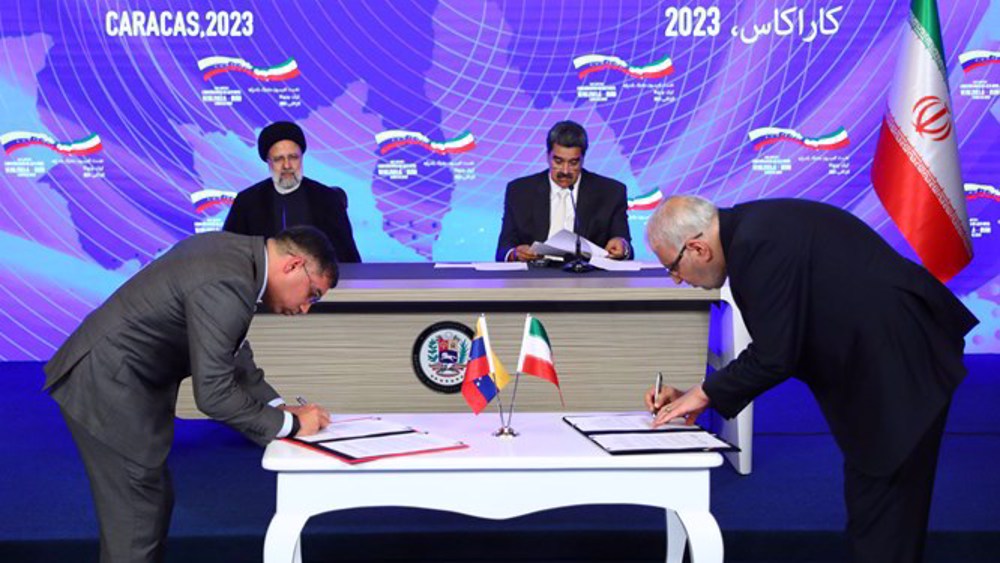


 This makes it easy to access the Press TV website
This makes it easy to access the Press TV website